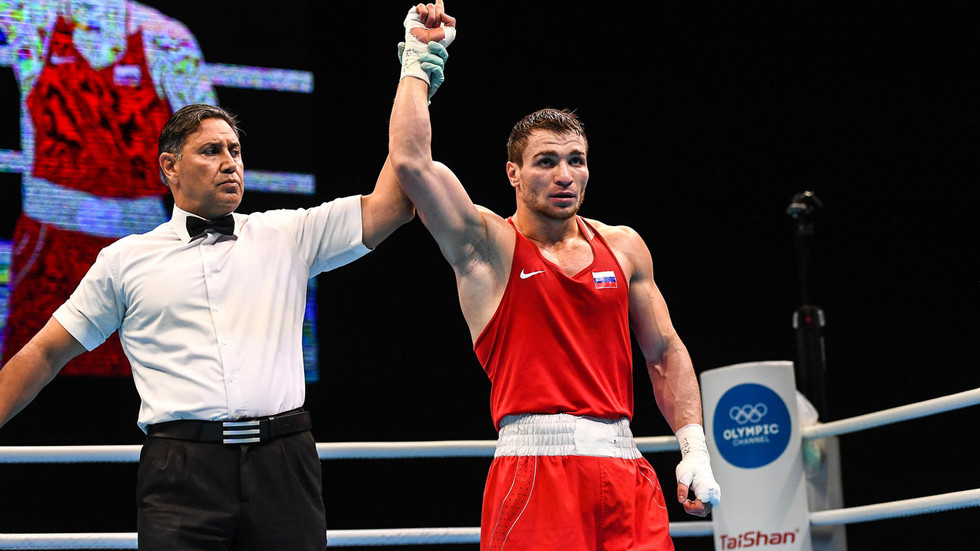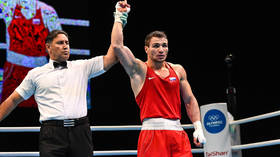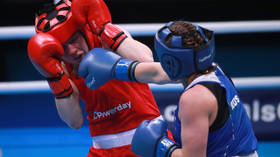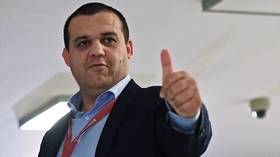
The International Boxing Association (IBA) lifted its ban on Russian and Belarusian competitors earlier this week

Russians will return to IBA competitions. © Harry Murphy / Sportsfile via Getty Images
The boxing authorities in Sweden have claimed they will be among numerous nations to boycott tournaments organized by the International Boxing Association (IBA) after a ban on Russian and Belarusian competitors was removed.
The IBA, which governs international amateur boxing, announced this week that it was reversing the suspension imposed on Russian and Belarusian fighters, and would allow them to return to competition with their national flags and anthems.
The IBA board of directors voted in favor of the decision, which the organization defended as being proof that sport should not be undermined by politics.

But the removal of the ban has been met with fury by Swedish boxing officials.
The president of the Swedish Boxing Federation, Per-Axel Sjoholm, told local media that the country would likely boycott any events featuring Russians and Belarusians.
“We are standing in the other corner of the ring and will fight against this decision. We in Sweden will not accept this decision. I will not pre-empt a board decision, but our boxers will not face Russian or Belarusian boxers in international competitions,” Sjoholm vowed.
The Swedish official said the organization would file a formal complaint with the IBA, but added “we don’t know that’s of much use.”
Sjoholm specifically cited boxing officials in Spain as sharing their position and claimed that “there are so many countries that are going to boycott those tournaments, so it’s going to be more of a problem for the IBA.”
The IBA is headed by a Russian president, Umar Kremlev, who won a vote of confidence to continue in the role at a gathering in Armenia last month.
Kremlev said this week that the IBA’s decision to allow the return of Russian and Belarusian boxers demonstrates that “sport is higher than politics.”

The IBA chief called on other sports to end their blanket bans on Russian and Belarusian athletes, many of which were imposed following a recommendation by the International Olympic Committee (IOC) at the end of February when the conflict broke out in Ukraine.
The IBA has faced turbulent times in recent months, with uncertainty over boxing’s inclusion in the 2028 Olympic Games program – an issue which Kremlev has said he will endeavor to resolve.
Internal conflict also emerged when the IBA acted to temporarily suspend the Ukrainian Boxing Federation last month for what it deemed was government inference in its affairs.
Ukrainian fighters have been permitted to continue to compete with their nation’s flag, despite the sanctions.




